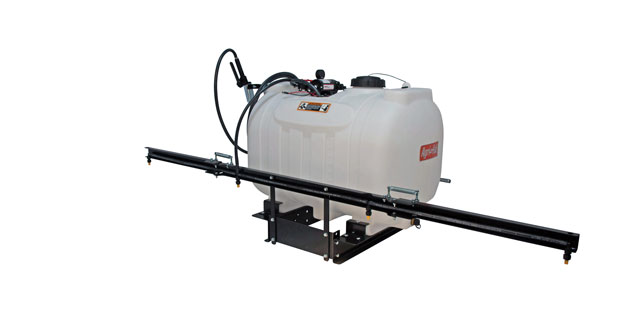
Filing taxes. No one really likes it, but, year after year, it’s an unavoidable task. For landscape business owners, being prepared with the right information and a savvy adviser can lessen the stress of tax season.
Dan Gordon, CPA and owner of Turf Books, a green industry accounting and bookkeeping firm based in Newton, N.J., says it’s a good idea to be up to speed on any new developments in tax law pertinent to small businesses. While last year’s tax reform legislation brought several new changes, Gordon says this year will be more straightforward. He notes the new qualified business income (QBI) deduction, also known as the section 199A deduction, is one to know. This deduction, created by the 2017 Tax Cuts and Jobs Act, allows pass-through entities to deduct up to 20 percent of their QBI, plus 20 percent of qualified real-estate investment trust dividends and qualified publicly traded partnership income. Income earned through a C corporation or by providing services as an employee are not eligible for the deduction.
Tic, tax, toe
The 179 deduction, also called accelerated depreciation, is relevant to landscape business owners as well. Section 179 allows taxpayers to deduct the cost of certain property as an expense when the property is placed in service. The deduction applies to tangible personal property, such as machinery and equipment purchased for use in a trade or business, as well as qualified real property. The definition of qualified real property also includes qualified improvement property and some improvements to nonresidential real property, such as roofs, heating, ventilation and air-conditioning systems, fire protection systems and security systems.
“When you buy, for example, a truck for $10,000, usually you would depreciate it over five years, but you can actually expense the whole thing the year you purchase it though accelerated depreciation or the 179 deduction,” Gordon says. “This one is a double-edged sword, though, because next year you still have to make payments on that truck or piece of equipment, but you don’t get the deductions.”
Gordon also mentions the 2018 U.S. Supreme Court decision South Dakota v. Wayfair in which the court ruled by a 5-4 majority that states may charge tax on purchases made from out-of-state sellers, even if the seller does not have a physical presence in the taxing state. While this does not impact landscape business owners directly, it does impact the purchase of goods and materials, particularly those made online.
“We are not in the cyber business, but it’s important because out-of-state distributors now have to charge sales tax on materials purchased from out-of-state buyers,” Gordon says.
To make the tax season go as smoothly as possible, Gordon says business owners should take time to do tax projections before the end of the year to avoid any surprises come April 15.
This will help determine if business owners need to take any action, like buying equipment or paying out pensions, to reduce their taxes. Particularly for small businesses that don’t have an accounting staff, it’s also a good idea to have a third-party professional involved throughout the duration of the process.
Alex Tartar, CFO at Green Lawn Fertilizing in West Chester, Pa., works closely with his firm’s outside accountant throughout the year and relies on him for important information.
“Our accountant lives in this world day in and day out and provides us guidance on issues we need to be aware of,” Tartar says. “This is better than trying to take it all on our own while trying to run the business.”
Tartar says it’s also a good idea to keep records and paperwork accessible and up to date throughout the year. Issues a company will face in year one will be different in years five and 10, so it’s important to always be organized and informed.
“In the off chance you have to prove things or are audited, have backup and documentation ready,” he says. “Gather that data during the course of the year so you’re not scrambling at the end of the year.
“A good tax adviser will walk you through everything,” Tartar adds. “Find a good one and rely on him or her.”


